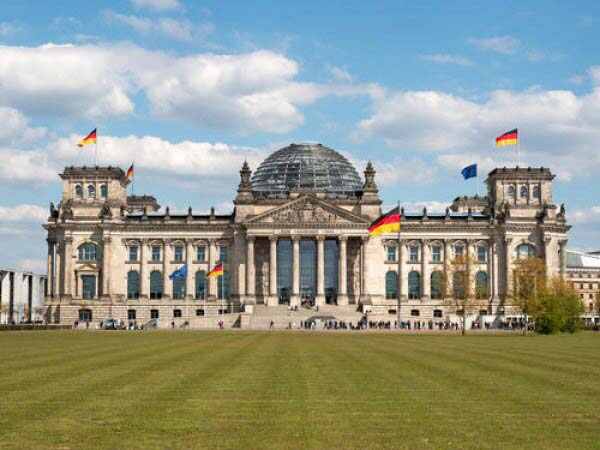
In Germany, employee holidays and benefits are strictly regulated by law. These regulations not only protect employees’ rights but also pose requirements for corporate human resource management. Understanding these regulations is crucial for companies’ compliance and maintaining employee relations. This article aims to provide HR with a detailed guide on German employee holidays and benefits.
Traditional Public Holidays
New Year (Neujahr, January 1st): A national holiday celebrating the start of the new year. People typically celebrate this day with family and friends, welcoming the new year.
Epiphany (Heilige Drei Könige, January 6th): Celebrated in Baden-Württemberg, Bavaria, and Saxony-Anhalt. This holiday commemorates the visit of the Magi to the baby Jesus, with people often visiting friends and exchanging gifts.
International Women’s Day (Internationaler Frauentag, March 8th): Celebrated only in Berlin. This day commemorates the struggle of women for rights and equality, with various activities and celebrations held.
Easter (Ostern): Dates vary, including Good Friday (Karfreitag) and Easter Monday (Ostermontag). One of the most important Christian holidays, celebrating the resurrection of Jesus Christ, with various religious and cultural activities.
Labor Day (Tag der Arbeit, May 1st): A national holiday. Traditionally a day of protest and celebration for the working class and left-wing political groups.
Ascension Day (Christi Himmelfahrt): 39 days after Easter, a national holiday. This holiday commemorates the Ascension of Jesus, often associated with outdoor activities and church services.
Pentecost (Pfingsten): 49 days after Easter, including Sunday and the following Monday. This holiday commemorates the descent of the Holy Spirit upon the apostles of Jesus, an important Christian festival.
Assumption Day (Mariä Himmelfahrt, August 15th): A holiday in Catholic states like Bavaria and Saarland. This day commemorates the Assumption of Mary.
German Unity Day (Tag der Deutschen Einheit, October 3rd): A national holiday commemorating the reunification of East and West Germany in 1990. This day often features public celebrations and political speeches.
Thanksgiving (Erntedankfest): The first Sunday of October. Not a public holiday, but many churches in Germany hold thanksgiving services to celebrate the autumn harvest.
Reformation Day (Reformationstag, October 31st): A holiday in some Protestant states like Saxony-Anhalt and Brandenburg, commemorating Martin Luther’s Reformation.
Halloween (October 31st): Although not a public holiday, the celebrations (like costume parties and trick-or-treating) are becoming increasingly popular in Germany.
St. Martin’s Day (Martinstag, November 11th): A traditional festival, especially celebrated by children with lantern parades. Not a public holiday.
St. Nicholas’ Day (Nikolaustag, December 6th): A traditional festival where children look forward to gifts from Saint Nicholas, usually sweets and small toys. Not a public holiday.
Christmas (Weihnachten, December 25th and 26th): December 25th is Christmas Day, and the 26th is the second day of Christmas. Both are public holidays, with family gatherings and religious celebrations being very important.
Sick Leave (Sick Leave)
German labor law entitles employees to sick leave during illness. Generally, if the sick leave exceeds three days, employees must provide a doctor’s medical certificate. During sick leave, salaries are usually paid in full by the employer. This policy ensures that employees can rest and recover fully when sick.
Maternity and Paternity Leave
Germany’s regulations for maternity and paternity leave are very humane. Pregnant women can start their maternity leave six weeks before the expected delivery date and continue until eight weeks after childbirth, enjoying full-pay leave during this period. Additionally, fathers are entitled to paternity leave, the duration of which is usually determined by company policy. Parents can also opt for parental leave, which can last up to three years, with part of the income subsidized by the government.
Annual Leave (Annual Leave)
German law stipulates that full-time employees are entitled to a minimum of 20 working days of paid annual leave. Many companies offer more than this minimum requirement, depending on the employee’s length of service or company policy. Annual leave arrangements usually need to be negotiated in advance with the employer.
Other Benefit Leaves
In addition to the holidays mentioned above, German employees may also enjoy other benefit leaves such as moving leave, marriage leave, and bereavement leave. The specific days and salary treatment of these leaves depend on the company’s HR policy. These leaves reflect the company’s care and support for employees’ personal life events.
For companies operating in Germany, understanding and complying with regulations regarding employee holidays and benefits is crucial. Reasonable holiday arrangements are not only a legal obligation but also a significant factor in enhancing employee satisfaction and work efficiency. This article hopes to help HR professionals understand German employee holiday policies more comprehensively and apply them in their practical work.